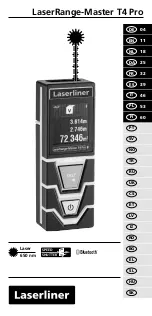
© PCE Instruments
3
3
System description
3.1
Device
The PCE-1000N is a digital indentation hardness tester for measuring the hardness of
aluminium. It comes with many different features, such as a digital display, good stability, a
maximum and average value function. It is mainly used in the aluminium processing industry for
testing aluminium castings and forgings. It can also be used for softer metals, such as copper or
lead, as well as for fibre-reinforced plastics. The device meets the following standards: ASTM
B648-00, ASTM HD2583-07 and GB / T 3854-2005.
Features:
-
The device is portable due to its small dimensions and can be operated with one hand
only.
-
The device has a wide measuring range and can measure hard aluminium alloys as
well as soft pure aluminium and other softer metals, such as copper and lead. The
effective measuring range is equivalent to a Brinell hardness of 25~150HB.
-
The max hold function shows the maximum value during the measurement.
-
The PCE-1000N can be used for measuring not only Barcol hardness, but also Brinell
hardness (HB), Vickers hardness (HV), Webster hardness (HW) and Rockwell
hardness (HRB/HRE/HRF/HRH).
-
With its average function, the device can calculate an average value of up to 29
readings.
With its standard load spring and standard pressure pins, the PCE-1000N can be used for a
variety of different materials, such as aluminium, aluminium alloy, copper, copper alloy, fibre-
reinforced plastics (glass, steel), other reinforced plastics, non-reinforced hard plastic, and other
materials. The typical hardness range is 25
– 135 HBW (500kg, 10mm). The following chart
shows typical Barcol hardness values of different aluminium alloys:
Alloy and heat
treatment
1100-0
3003-0
3003H14
2024-0
Barcol
Hardness
35
42
56
60
Alloy and heat
treatment
5052-0
5052H14
6061T6
2024T3
Barcol
hardness
62
62
80
85

































